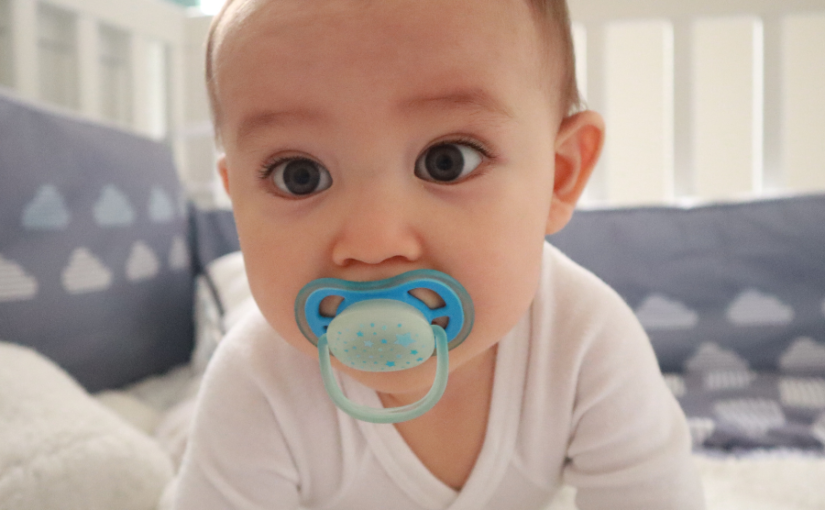By: Dr. Elizabeth Eggert
How Thumb Sucking and Pacifier Use Affects Dental and Facial Development in Children
Thumb sucking and pacifier use are common soothing behaviors for infants and toddlers. While these habits provide comfort and are appropriate for the first few months of life, they can significantly affect your child’s dental and facial development if they continue too long. As a parent, understanding the potential consequences of prolonged thumb sucking and pacifier use is crucial for ensuring your child’s healthy development.
What happens?
When thumb sucking or pacifier use persists beyond the age of 12 months, it can start to impact the alignment of your child’s teeth and the shape of their jaws. These habits create constant pressure on the developing mouth, which can lead to problems such as an open bite, where the front teeth do not meet when the mouth is closed, or a crossbite, where the upper teeth sit inside the lower teeth when biting down. Dr. Elizabeth Eggert and Dr. Jeff Eggert at Eggert Family Dentistry in North Oaks, MN, have seen firsthand how these habits can alter a child’s dental structure, leading to the need for orthodontic or other interventions.
In addition to dental alignment issues, thumb sucking and pacifier use can also affect the overall facial development of your child. Prolonged use of a pacifier or habitual thumb sucking can lead to changes in the shape of the jaw bones and the position of the teeth, which can impact the symmetry and esthetics of your child’s face. This can also contribute to speech and swallowing difficulties due to improper tongue positioning.
What can be done?
The good news is that the sooner you help your child break these habits, the more likely they are to develop a healthy dental and facial structure. Stopping thumb sucking and pacifier use at a young age allows your child’s mouth and jaw to develop correctly because they can get their tongue in a position that promotes proper development. This can then prevent the need for extensive dental work later on. You might be surprised by the positive changes that occur when these habits are stopped early, as the mouth and facial muscles begin to realign naturally. Here are some before and after photos of during pacifier use and after simply stopping pacifier use. You can see the teeth have mostly self-corrected on their own.

How to help your child give up their pacifier or thumb
To help your child give up their pacifier, consider gradually reducing its use by limiting it to certain times, such as bedtime only. You can also introduce a reward system to encourage your child to go without the pacifier during the day. If your child is older, you might try explaining why it’s important to stop using the pacifier, using age-appropriate language to help them understand. Dr. Elizabeth Eggert and Dr. Jeff Eggert often recommend these strategies to parents at Eggert Family Dentistry, as they have proven effective in many cases.
For thumb sucking, positive reinforcement is key, especially since you can’t keep the thumb away from the child! Praise your child when they refrain from sucking their thumb, and consider offering a small reward for keeping their thumb out of their mouth. You can also try using a bandage or a thumb guard to remind your child not to suck their thumb. If the habit is particularly persistent, consulting with the dentists at Eggert Family Dentistry, Dr. Elizabeth Eggert or Dr. Jeff Eggert, can provide additional guidance and support tailored to your child’s needs. At Eggert Family Dentistry, we have found setting young children up with the Myobrace Infant Trainer can prove especially effective because it develops correct muscle posture as well as gives the child something to keep in their mouth.
By addressing thumb sucking and pacifier use early, you can help ensure your child develops a healthy, beautiful smile. At Eggert Family Dentistry in North Oaks, MN, Dr. Elizabeth Eggert and Dr. Jeff Eggert are here to support you and your child through every stage of their dental development, offering personalized advice and care to help your child achieve the best possible outcomes. Call us today with questions about how to help you and your family! 651-482-8412.
